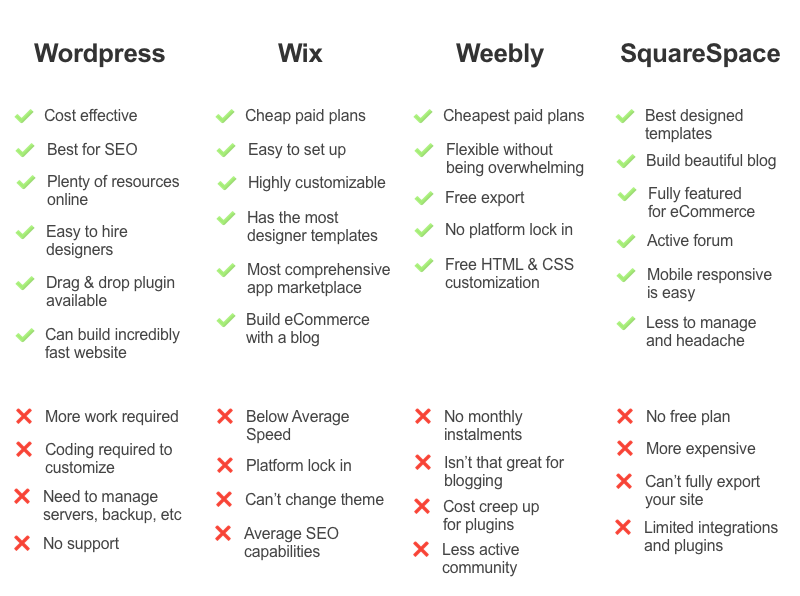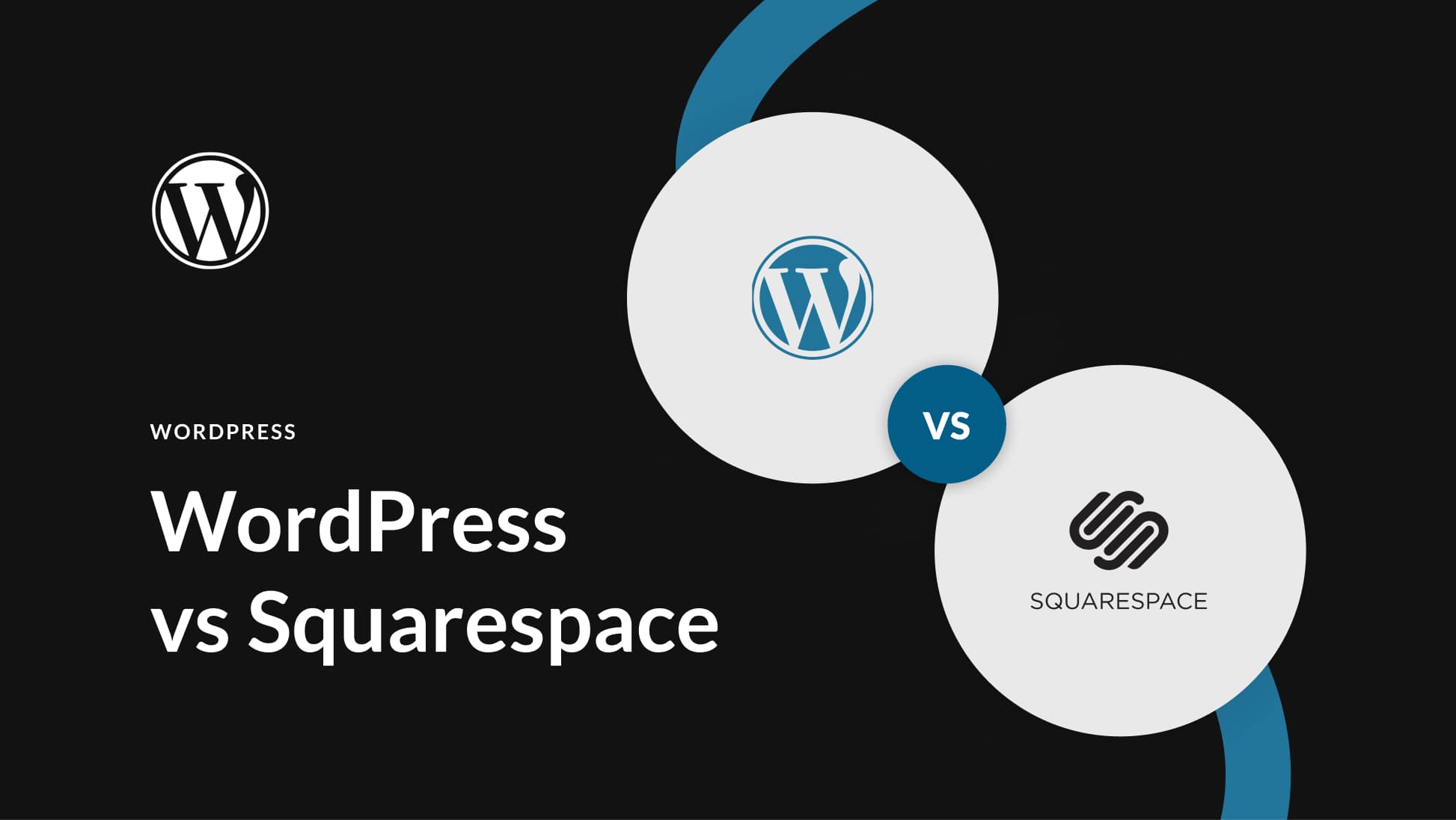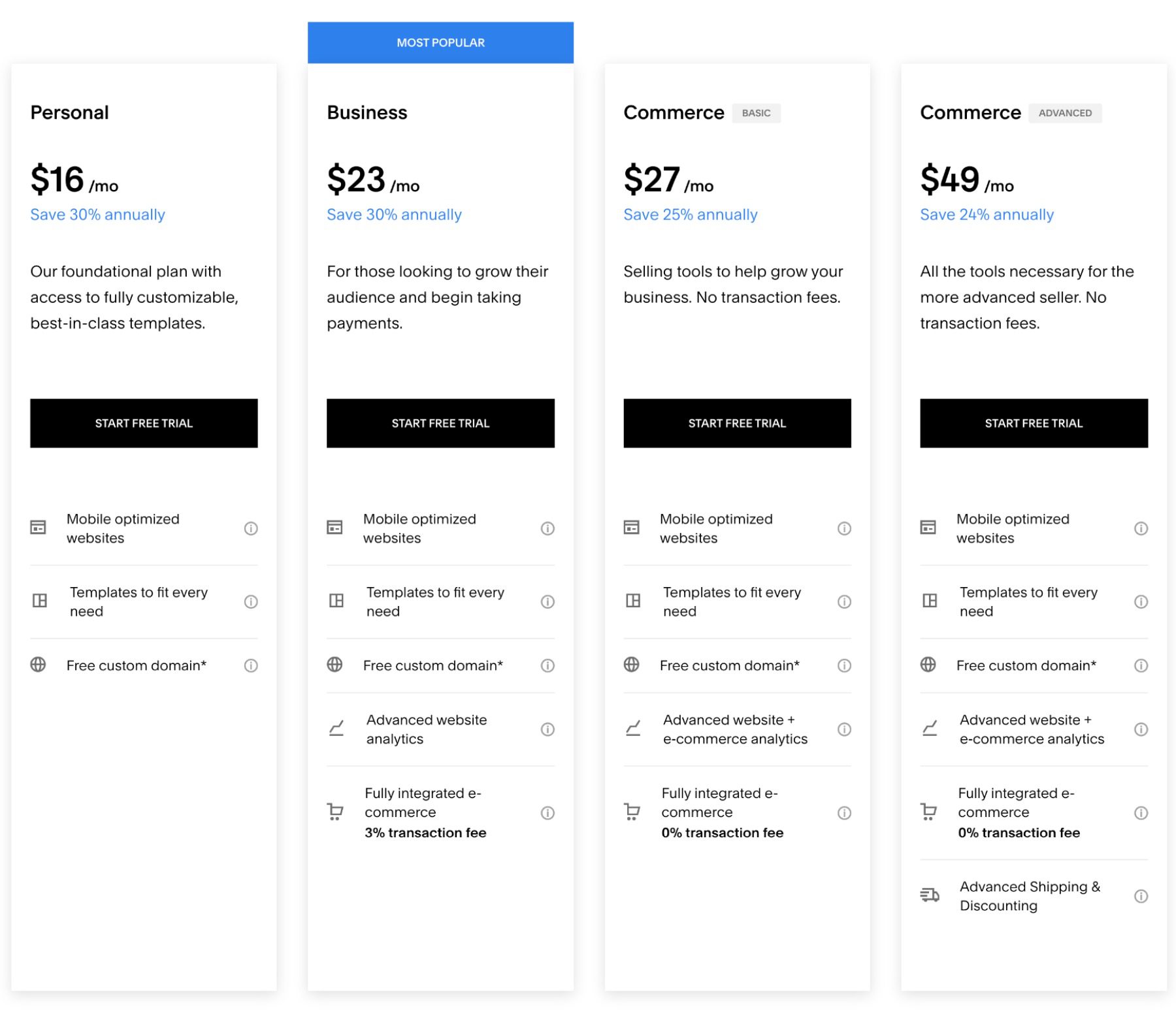WordPress and Squarespace are both website building platforms, but the key difference lies in their level of customization. With WordPress, users have more control over design and functionality, making it suitable for complex and unique websites.
On the other hand, Squarespace offers a simpler interface and pre-designed templates, making it user-friendly and ideal for beginners or those seeking a hassle-free experience. Whether you’re a professional web developer or a small business owner, understanding the distinction between these platforms will help you make an informed decision when building your website.

Credit: www.makingthatwebsite.com
WordPress Vs. Squarespace: The Basics
WordPress and Squarespace are popular website building platforms, but they differ in their purpose and functionality. WordPress is an open-source platform with a vast range of customizable features, while Squarespace is an all-in-one platform with limited customization options but an easy-to-use interface.
Core Differences
WordPress and Squarespace are two of the most popular content management systems (CMS) available in the market today. While WordPress is an open-source software that can be downloaded and installed on any server, Squarespace is a fully hosted platform that provides an all-in-one solution for building a website. One of the key differences between the two is the level of control and flexibility they offer. WordPress is highly customizable and can be extended with thousands of plugins and themes, while Squarespace has a more limited set of options but is easier to use for beginners.Origins And Evolution
WordPress was first released in 2003 as a blogging platform, but has since evolved into a powerful CMS that powers over 40% of all websites on the internet. It is an open-source software that is free to use and has a large community of developers constantly working to improve it. Squarespace, on the other hand, was founded in 2004 as a website builder aimed at providing an easy-to-use platform for non-technical users. It has since grown to become a popular website builder for small businesses and creatives.Comparison Table
| Feature | WordPress | Squarespace |
|---|---|---|
| Cost | Free, but requires hosting and domain registration | Subscription-based, plans start at $12/month |
| Customizability | Highly customizable with thousands of plugins and themes | Less customizable, but has a more streamlined interface for beginners |
| Ease of use | Can be more difficult to use for beginners | More user-friendly with a drag-and-drop interface |
| SEO | Offers more control over SEO with plugins like Yoast | Has built-in SEO features, but less control over customization |
| E-commerce | Can be extended with plugins like WooCommerce | Has built-in e-commerce features |

Credit: www.elegantthemes.com
Customization And Flexibility
When it comes to building a website, customization and flexibility are crucial factors to consider. Both WordPress and Squarespace offer unique features in this aspect, catering to different needs and preferences. Let’s delve into the differences in customization and flexibility between the two platforms to help you make an informed decision.
Themes And Plugins In WordPress
WordPress is renowned for its extensive library of themes and plugins, providing users with unparalleled flexibility in customizing their websites. With thousands of free and premium themes to choose from, users can easily modify the design and functionality of their websites. Additionally, the availability of plugins allows for seamless integration of various features and functionalities, empowering users to create a truly unique online presence.
Design Capabilities In Squarespace
Squarespace, on the other hand, is lauded for its intuitive design capabilities. The platform offers a range of stunning templates and a user-friendly drag-and-drop interface, enabling users to effortlessly customize the look and feel of their websites. While the design options may be more streamlined compared to WordPress, Squarespace provides a cohesive and polished aesthetic that appeals to users seeking a visually impactful online presence.
Ease Of Use And User Experience
When it comes to building a website, two popular options are WordPress and Squarespace. Both platforms offer user-friendly interfaces, but there are some key differences in terms of ease of use and user experience.
Learning Curve For Beginners
For beginners, WordPress can have a steeper learning curve compared to Squarespace. WordPress is a powerful and flexible platform that offers endless customization options. However, this flexibility can be overwhelming for someone who is new to website building.
Squarespace, on the other hand, is known for its intuitive and user-friendly interface. It provides a drag-and-drop editor that allows users to easily create and customize their websites without any coding knowledge. This makes it a great choice for beginners who want to quickly set up a professional-looking site.
Interface And Dashboard Comparison
When it comes to the interface and dashboard, WordPress and Squarespace have different approaches.
WordPress:
- WordPress has a more traditional and comprehensive interface.
- It offers a backend dashboard where users can manage all aspects of their website.
- Users can access various settings, themes, plugins, and content management features.
Squarespace:
- Squarespace has a sleek and modern interface.
- It provides a unified dashboard that combines website editing, analytics, and e-commerce tools.
- Users can easily navigate through different sections and make changes to their site.
Overall, the interface and dashboard of Squarespace are more streamlined and user-friendly, making it a preferred choice for those who value simplicity and ease of use.
Pricing, Hosting, And Support
When it comes to choosing a website building platform, pricing, hosting, and support are crucial factors to consider. In this section, we will analyze the cost, hosting solutions, and customer support services provided by both WordPress and Squarespace.
Cost Analysis For Both Platforms
Let’s start by comparing the cost of using WordPress and Squarespace. WordPress is an open-source platform, meaning it is free to use. However, you will need to pay for web hosting and a domain name. The cost of hosting can vary depending on the hosting provider you choose, but it typically ranges from $3 to $25 per month. Additionally, you may need to purchase premium themes and plugins, which can range from $50 to $200 per year.
Squarespace, on the other hand, offers all-in-one pricing plans that include both hosting and a domain name. Their plans start at $12 per month for a basic website and go up to $40 per month for an advanced e-commerce site. While Squarespace’s plans may seem more expensive upfront, they eliminate the need for separate hosting and domain costs.
In summary, WordPress can be a more cost-effective option if you choose affordable hosting and free themes/plugins. On the other hand, Squarespace provides a more straightforward pricing structure that includes hosting and domain expenses.
Hosting Solutions
When it comes to hosting, WordPress offers a wide range of options. You can choose from shared hosting, virtual private servers (VPS), dedicated servers, or even managed WordPress hosting. This flexibility allows you to select a hosting solution that best suits your website’s needs and budget. However, it also means you have to research and choose a reliable hosting provider.
Squarespace, on the other hand, provides its own hosting services. This means you don’t have to worry about finding a separate hosting provider or dealing with technical aspects of hosting. Squarespace takes care of all the hosting requirements, ensuring your website is secure and performs well.
Customer Support Services
Both WordPress and Squarespace offer customer support services, but they differ in terms of availability and methods of support. WordPress has a vast community of users and developers who provide support through forums, documentation, and online resources. Additionally, some hosting providers offer specialized WordPress support.
Squarespace, on the other hand, provides dedicated customer support through email and live chat. They also have an extensive knowledge base and video tutorials to help you troubleshoot issues on your own.
In conclusion, while WordPress relies on its community for support, Squarespace offers direct support channels. However, it’s important to note that the level of support may vary depending on the hosting provider you choose for WordPress.

Credit: www.elegantthemes.com
Frequently Asked Questions
Is Square Better Than WordPress?
Square and WordPress are different platforms with different strengths. Square is ideal for small businesses with basic needs, while WordPress is more flexible and customizable for larger businesses and those with more complex needs. Ultimately, the better option depends on the specific needs and goals of the business.
Should I Switch From Squarespace To WordPress?
Switching from Squarespace to WordPress can be a good choice. WordPress offers more flexibility, customization options, and access to a larger community of developers. It also provides better SEO capabilities and allows you to have full control over your website.
Make sure to plan the migration carefully to avoid any disruptions.
Does Squarespace Allow WordPress?
No, Squarespace does not allow WordPress. They are two separate platforms for building websites. Squarespace has its own website builder, while WordPress is a content management system.
Is WordPress The Best For Building A Website?
Yes, WordPress is one of the best platforms for building a website due to its flexibility, ease of use, and extensive range of plugins and themes. It also offers strong SEO capabilities and is continuously updated for security and performance.
Conclusion
Both WordPress and Squarespace have unique features to suit different website needs. WordPress offers flexibility and customization, while Squarespace provides ease of use and beautiful design templates. Ultimately, the choice between the two platforms depends on your specific requirements and preferences.
Consider your goals and resources before making a decision.

